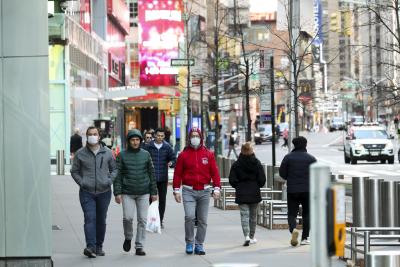Inaccurate info on social media, don't stop your pills: Scientists
By IANS | Published: March 28, 2020 06:32 PM2020-03-28T18:32:05+5:302020-03-28T18:45:07+5:30
Amid the fast-spreading coronavirus (COVID-19) pandemic, researchers have advised that heart and kidney patients should keep taking their medicines as inaccurate medical information has flooded social media and other channels.

Inaccurate info on social media, don't stop your pills: Scientists
New York, March 28 Amid the fast-spreading coronavirus (COVID-19) pandemic, researchers have advised that heart and kidney patients should keep taking their medicines as inaccurate medical information has flooded social media and other channels.
One potentially lethal example is that patients who take the renin-angiotensin system (RAS) blockers, particularly angiotensin II type 1 receptor blockers (ARBs), maybe more susceptible to the virus.
ARBs are prescribed for high blood pressure, congestive heart failure, kidney disease and other conditions.
However, in an article published in the journal Hypertension, researchers warn there is little credible or consistent evidence to back up this concern.
"The only thing we can conclude definitively, based on all the known data, is that there is no credible evidence whatsoever that ARBs enhance susceptibility to COVID," said study researcher Murray Epstein from the University of Miami in the US.
In the study, the research team carefully reviewed the available data to determine whether ARBs pose any significant risk.
They noted the concern originated from reports that the angiotensin-converting enzyme 2 (ACE 2) protein receptor may enable viral entry into cells.
Amplified by various media, this led some patients to discontinue their medications - either on their own or based on advice from a physician.
However, the evidence that ARBs may increase COVID-19 risk is inconsistent, at best.
Though some studies have shown ARBs increase ACE 2 activity in animal models, it must be emphasised that the results have been inconsistent, the researchers said.
What investigators have found varies widely, depending on the organ studied, the experimental animal model and the ARB being used in the study.
"In summary, there is a complete lack of consistency," Epstein said.
While there is no credible evidence that ARBs increase COVID-19 risk, the researchers noted that there are clear dangers for patients who stop taking their medications.
Widespread discontinuation of ARBs and ACE inhibitors could cause destabilisation of blood pressure control and decompensation of heart failure patients, leading to sharp increases in heart attacks and strokes and a worsening of kidney failure.
"This would be a double tragedy because it would be happening precisely at a time when our hospital and ICU resources are stressed to the limit," said Epstein.
( With inputs from IANS )
Open in app